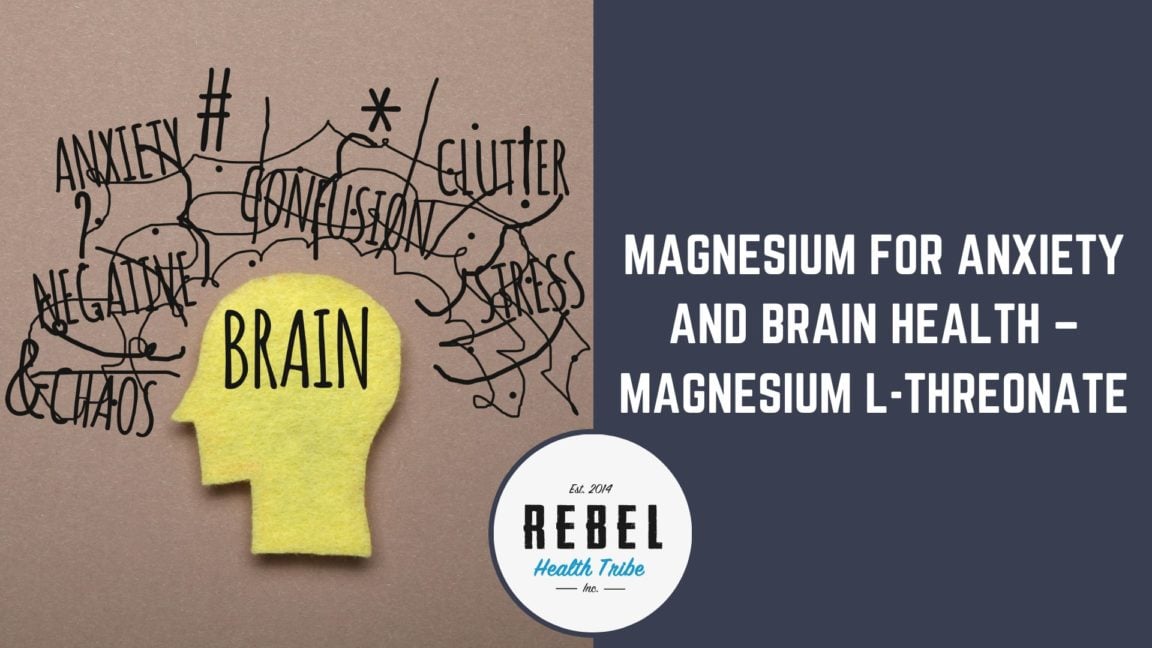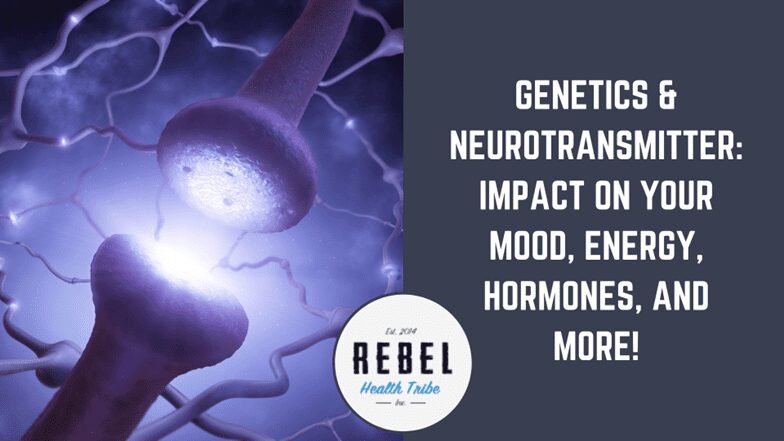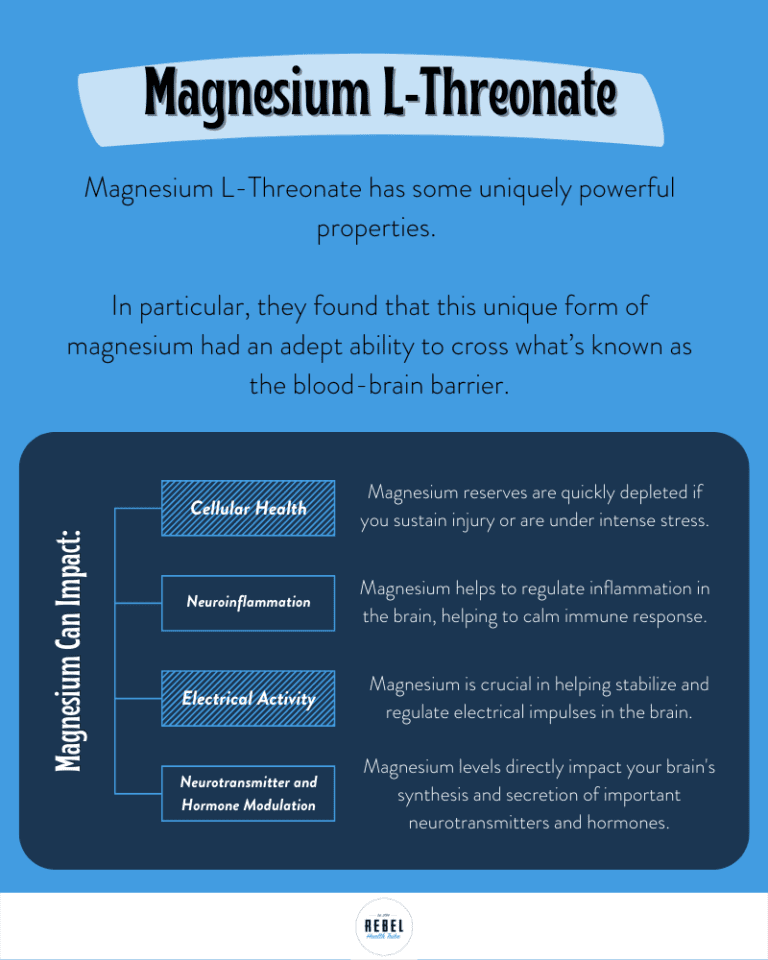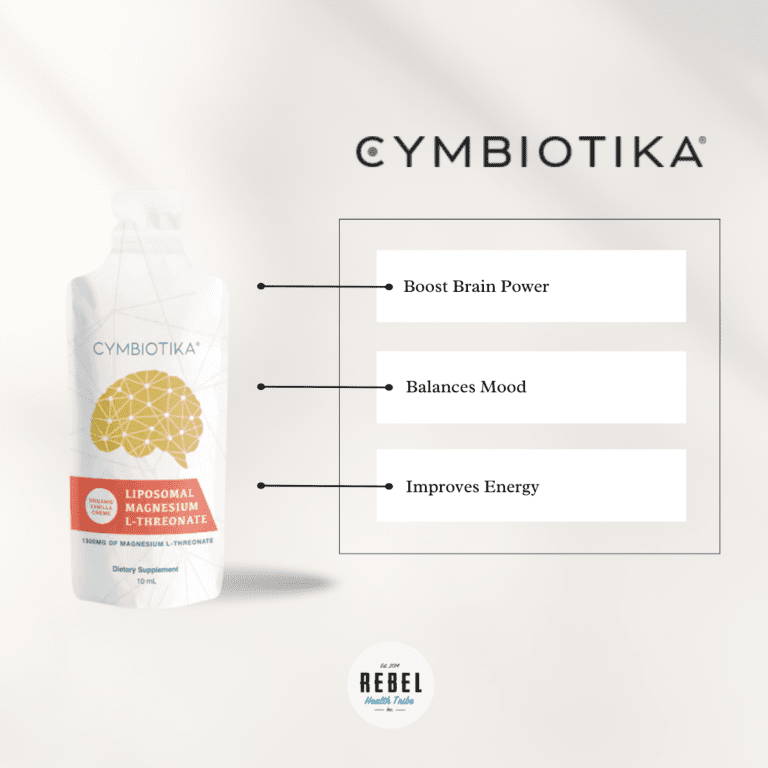
Genetics and Hormone Production, Transport, Utilization, and Metabolism
Our genetics play a larger role in our hormones than


Our genetics play a larger role in our hormones than

Have you wondered why an antidepressant didn’t work for you?

https://vimeo.com/821487331 If you’ve ever bought a detox kit off
It’s safe to say that just about all of us have experienced feelings of anxiety and stress, or even gotten a case of the blues at one time or another. And we can likely all attest to the fact that these feelings are not all that fun, and they can sometimes even put a major damper on your day-to-day life.
While addressing an imbalance in your mood or mental health is more often than not a complex, multi-layered, and entirely personal path, there is an all-natural supplement that’s stealing the spotlight when it comes to combating anxiety, boosting mental well-being, and supercharging overall brain health. What is this sensational supplement? A newly created form of magnesium known as magnesium l-threonate.
In this blog post, we’ll explore exactly what magnesium l-threonate is, what makes it one of the most potent brain health supplements, how it exerts its anxiety-alleviating effects, and most importantly – how to get the most bang for your buck when asking the question: what kind of magnesium should I take? Let’s get into it.
Magnesium is so crucial to our health that it’s been dubbed the “master mineral”. Magnesium serves as a catalyst for dozens of enzymatic reactions, assists in bone and muscle formation, activates other crucial vitamins, and much, much more.1 But not all forms of magnesium are created equally.
You see, magnesium itself is a highly reactive metal – meaning it is always bound to another compound to stabilize it.2 This process of bonding magnesium molecules to other molecules is known as chelation. There are lots of different types of magnesium and forms of chelated magnesium (you can read more about some other different types of magnesium supplements right here).
Magnesium l-threonate is a form of magnesium bound to l-threonate which is a metabolite of Vitamin C. Magnesium l-threonate was discovered and developed by a team of scientists at MIT (the renowned Massachusetts Institute of Technology) during studies evaluating the effects of magnesium supplementation.3 As researchers at MIT assessed the potency of magnesium chelated with different compounds, they discovered that magnesium l-threonate had some uniquely powerful properties.
In particular, they found that this unique form of magnesium had an adept ability to cross what’s known as the blood-brain barrier.
The conglomeration of tissues and blood vessels that permeate your central nervous system and brain have a unique ability to tightly regulate the movement of molecules between your bloodstream and your nervous system. These cells are packed tightly together – allowing them to be extremely selective in what does and doesn’t make its way into your brain. While these restrictive properties are crucial for protecting your brain from toxins, invading pathogens, and inflammation, it also poses a challenge when it comes to delivering certain nutrients or drugs to your brain.4
Magnesium is able to cross the blood-brain barrier through specific transportation channels. But the problem is, that most forms of magnesium are only able to cross this blood-brain barrier very slowly and at low levels.5,6
But magnesium l-threonate on the other hand, is able to much more readily make its way past your blood-brain barrier and significantly boost your brain’s magnesium levels.
This impressive ability to supercharge your brain’s magnesium levels is what makes magnesium l-threonate such a game-changer when it comes to brain health and mental well-being. Let’s take a look at how magnesium exerts these impressive brain and mood-boosting effects.
Magnesium plays a monumental role in keeping your brain healthy and supporting a balanced mood thanks to its potent ability to impact:6,7

Because magnesium has such remarkable neuroprotective effects, insufficient levels of magnesium in the brain have been linked to conditions like:9
So it’s easy to see how upping your levels of this master mineral can help improve your brain function, calm anxiety, and support a healthy, regulated nervous system. Let’s look a little deeper at one of the most impressive magnesium threonate benefits – helping manage and reduce anxiety.

If you’ve ever grappled with persistent feelings of anxiety, you know firsthand that it can leave you desperately searching for answers on how to calm anxiety symptoms. So, can you really take magnesium for anxiety?
The answer to this question is – yes. Magnesium can work wonders for symptoms of anxiety, stress, and other mood disorders like depression. While we still don’t fully understand all the ways in which magnesium is able to exert its anxiety-reducing effects, it’s speculated that it goes something like this:10,11,12
Magnesium acts as a natural relaxant that can have a remarkable impact on combating anxiety, depression, and stress while helping boost your overall mood.
The answer to this question is – just about everyone. While magnesium can be particularly helpful for anyone grappling with anxiety, depression, or elevated stress, just about everybody can reap the benefits of optimizing their magnesium intake. You see, the vast majority of us are severely deficient in magnesium thanks to things like:13,14
So, in short, just about everyone could benefit from upping their magnesium levels. And while magnesium l-threonate is particularly potent at penetrating your blood-brain barrier, there’s one more way that you can enhance the absorption and bioavailability of your magnesium supplement – by using what’s known as a liposomal supplement.

In a nutshell, liposomal supplements are simply nutrients (like magnesium) encapsulated by tiny bubbles of fat known as liposomes. These liposomes shield and protect the supplement so they can be better transported and absorbed by your body – making it the best type of magnesium for brain health and overall absorption.
Taking magnesium l-threonate in liposomal form is hands down the best way to ensure you’re actually absorbing a concentrated dose of this brain-boosting mineral.
When it comes to magnesium supplements, Cymbiotika’s liposomal magnesium l-threonate is a game-changer. Each pouch delivers 1,300 mg of pure, high-quality magnesium l-threonate in liposomal form to maximize absorption. And to sweeten the deal even more, they’ve blended their liposomal magnesium l-threonate with tasty, top-notch, organic ingredients to create a delicious, easy-to-take supplement.
Click here to learn more about Cymbiotika’s liposomal magnesium l-threonate and to order your own box today. You can even get 10% off your first RHT order by signing up for our newsletter.
There’s no denying that magnesium l-threonate has some impressive brain-boosting, anxiety-alleviating, and stress-busting properties. While this miraculous mineral is certainly a powerful tool in our toolbelt, the truth is, there’s no one supplement or “health hack” that’s going to single-handedly transform the health of your brain and nervous system.
To truly support, optimize, and up-level your brain and nervous system health, you have to take a big-picture approach. If you want to save yourself years of research and shortcut your way to better brain and nervous system health, you’ve got to download our RHT Brain & Nervous System Support Guide.
This downloadable guide is PACKED with top tips, suggestions, and action steps from leading doctors, researchers, and experts on brain and nervous system health. And once you’ve downloaded your free guide, head over and check out the blog, our podcast, and the Wellness Vault. We’ve got loads of free value-packed resources to help you take your health to the next level.
Resources:
If you get fatigued, flushed, or foggy after eating, HistaHarmony,...

MegaSporeBiotic™ is a 100% spore-based, broad-spectrum probiotic shown to be...
MegaSporeBiotic™ Gummies are a 100% spore-based proprietary probiotic blend that...
MegaMucosa is the first complete mucosal support supplement of its...
An Exclusive Course with 10 Years of Microbiome
If you’ve ever wanted all of Kiran’s best
The toxicity and Detoxification Masterclass covers a wide
19 Leading Experts Share Cutting-Edge Science, Effective Practices,
Autoimmune Masterclass brings together 17 of the world’s
If you get fatigued, flushed, or foggy after...

MegaSporeBiotic™ is a 100% spore-based, broad-spectrum probiotic shown...
MegaSporeBiotic™ Gummies are a 100% spore-based proprietary probiotic...
MegaMucosa is the first complete mucosal support supplement...
An Exclusive Course with 10 Years of Microbiome Knowledge Build Your Resilient Gut: Microbiome & Beyond with Kiran Krishnan is the
If you’ve ever wanted all of Kiran’s best content in one place, here they are! These are the exact trainings
The toxicity and Detoxification Masterclass covers a wide array of topics with the following guests: 1. Lara Adler, Environmental Toxins
19 Leading Experts Share Cutting-Edge Science, Effective Practices, and Clinical Strategies to Optimize Brain & Nervous System Health in Kids